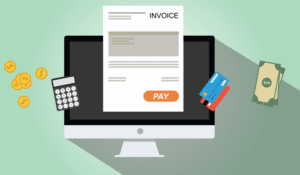
It’s a good idea to minimize your own accounting work, so set up an invoicing and payment system that is as automated as possible. Therefore, training as a bookkeeper is a great entry into becoming a freelance freelance accountant accountant. An alternative to advanced education is to get a bookkeeping certification which allows you to perform basic accounting tasks. However, having a postgraduate degree, such as a Master of Business Administration or an accounting certification, can get you a lot of attention from clients. These skills include time management, creativity, determination, integrity, tenacity, emotional balance, self-criticism, and management of money, time, and resources.

Increase your revenue per client
- These days, almost all freelance accounting work is available online, so it’s a good idea to build a digital presence right away.
- If you’re not already bringing a steady stream of clients into your new business, you’ll need to market yourself.
- While working at this business, you can do freelance accounting on the side, if that’s allowed, and build up a stable of reliable clients.
- It’s a good practice for anyone to track their income and expenses, but it’s really important to do this as a freelancer.
For example, if you earn $5,666 per month, that’s an annual salary of about $68,000. Free accounting tools and templates to help speed up and simplify workflows. Last but not least – remember not to forget about yourself during busy times! Freelancing can often become overwhelming, especially when juggling multiple projects simultaneously. The minimum recognised qualification in the UK is the Association of Accounting Technicians (AAT). This is suitable for anyone as you don’t need any previous qualifications to complete it.
Connect to cloud software
- Networking with other professionals, attending industry events, and joining online communities can help you connect with potential clients.
- The Association of Accounting Technicians (AAT) offers a wide range of courses to suit all experience levels.
- To attract potential clients as a freelance accountant, it’s important to establish a strong online presence.
- It really comes down to whether this work model is something that you enjoy and can sustain or whether it’ll become a daily source of struggle.
- Accountancy is an incredibly competitive sector and getting clients through the proverbial ‘door’ is crucial.
- This first step is essential for any aspiring freelance accountant.
Start your freelance career with accounting software designed for accounting professionals. Many businesses specifically look for accountants who use online software. Start by listing on Xero’s advisor directory, which generates several thousand referrals a week for What is bookkeeping accountants and bookkeepers.

Steps to Becoming a Freelance Accountant
Firstly, make sure you have the necessary qualifications or begin working towards them. For example, the Association of Accounting Technicians qualification is the minimum required for a qualified accountant and can be a good entry route into the industry. You will also no longer be entitled to benefits such as employer pension contributions and health plans. You’ll also need to source your own clients, so you’ll need to be comfortable promoting yourself and the work you do. This is where you decide on the services you want to offer, the kinds of clients you want to work with and your https://www.bookstime.com/ pricing structure.

Register with an approved Supervisory Body

Last but not least, decide what pricing you’d like to put on those services. While there are some objective advantages and disadvantages of working freelance, the subjective ones are probably the driving force behind the decision. It really comes down to whether this work model is something that you enjoy and can sustain or whether it’ll become a daily source of struggle. So think about your preferences and needs when it comes to the ideal work-life balance.

- First things first, it’s important to be clear about what it means to be freelance and determine whether it’ll work for you.
- While you’re preparing to go out on your own, it’s easy to overlook things like health insurance, software, and phone plans.
- Each of these certifications requires its own set of know-how, education, and exams.
- AccountsPortal, for example, lets you and your clients log in at the same time to review and adjust records in real-time.
- Accounting software can also submit your own Self Assessment returns to HMRC automatically.
- Many businesses specifically look for accountants who use online software.
- In the freelancing world, you’re more likely to get jobs if you have a positive online presence.
A bachelor’s degree in accounting or a related field will provide you with the necessary knowledge and skills to excel in this profession. The main difference between freelance accounting and traditional accounting is the employment structure. Traditional accountants are typically employed by a company or in an accounting firm, while freelance accountants work independently and take on clients as needed. Freelance accountants have more flexibility regarding the clients they work with and the projects they take on. Once your freelance accounting business is up and running, it’s time to start thinking about your long-term game plan.
